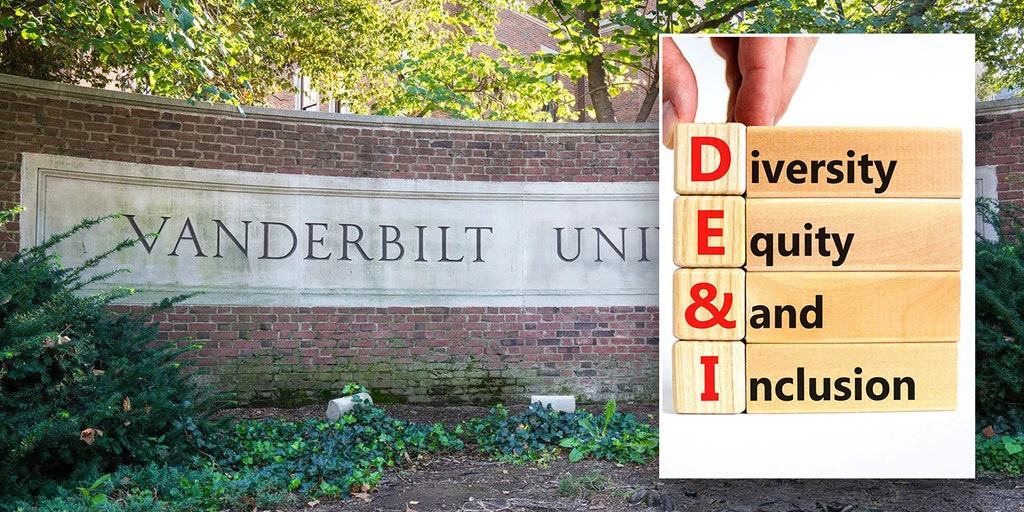
Unveiling Vanderbilt University Medical Center’s Hidden DEI Agenda
Vanderbilt University Medical Center (VUMC), a leading research hospital, is under scrutiny for allegedly concealing its Diversity, Equity, and Inclusion (DEI) initiatives and climate activism behind password-protected web pages. This revelation comes from the conservative nonprofit organization, Consumers’ Research, which launched a campaign titled, “What Is Vanderbilt University Medical Center Hiding?” The campaign highlights VUMC’s efforts to obscure its DEI commitments, raising questions about transparency and the use of taxpayer funds. What motivated this action, where did it take place, and who are involved, and how are they handling these initiatives, are critical to comprehending the whole issue.
Consumers’ Research discovered that VUMC was not only deleting references to DEI from its public-facing websites but also maintaining some of this information behind password-protected areas. The organization’s campaign includes a website, mobile billboards, and a letter to Health and Human Services (HHS) Secretary Robert F. Kennedy Jr., urging an investigation into VUMC’s practices.The core accusation is that VUMC, in light of Executive Order to eliminate DEI program, is attempting to hide its commitment to DEI and climate activism, potentially to avoid scrutiny or repercussions.
This action taken, allegedly, by VUMC, have spark outrage toward VUMC management. Will Hild, Consumers’ Research executive director, expressed these concerns in a statement to a media , emphasizing the sudden shift from openly promoting DEI and climate initiatives to concealing them. He questioned what VUMC was trying to hide with this “seemingly nefarious behavior.” Why they do that after promoting it fiercely, that is one of biggest question across media.
Password-Protected DEI Resources
While VUMC reportedly removed several DEI-related web pages, the Office of Diversity and Inclusion website allegedly remains active but requires a username and password for access. This includes a Department of Medicine page that previously detailed efforts to recruit a diverse resident and fellow population and provided resources for those underrepresented in medicine. This selective removal and protection of information have further fueled suspicions about VUMC’s motives.The fact,that some pages are deleted and other protected are pointing more suspicion of VUMC intention
Consumers’ Research also found that web pages related to “climate care as health care” and other climate change initiatives have been moved behind password protection. This adds another layer to the controversy, suggesting a broader attempt to downplay VUMC’s commitment to potentially controversial topics.VUMC spokesperson, John Howser, stated that the medical center is reviewing its programs to ensure compliance with President Donald Trump’s executive actions against DEI initiatives. He explained that websites were taken down temporarily to ensure “current, accurate, and factual information.”
VUMC’s Response and the Call for Investigation
VUMC maintains that it remains committed to creating a welcoming and inclusive environment for all. However, Consumers’ Research has called on HHS to investigate VUMC, arguing that taxpayer dollars should prioritize patient care, not political activism.The letter to HHS highlights VUMC’s reliance on federal funding and expresses readiness to assist in ensuring accountability. When this happened, especially since VUMC heavily relied on federal dollars.
The situation is further complicated by a previous investigation into VUMC by Tennessee’s Attorney General’s Office in 2023. The investigation stemmed from allegations of manipulated medical billing codes to bypass insurance limitations for transgender treatments. This followed a 2022 video that allegedly showed a VUMC doctor promoting transgender surgeries for minors as profitable ventures and advising those with religious objections to quit. The all of past and recent events have raise more question.
The Implications of Secrecy and the Future of DEI at VUMC
The controversy surrounding Vanderbilt University Medical Center’s handling of its DEI and climate initiatives raises significant questions about transparency and accountability in academic and medical institutions. The decision to password-protect information that was previously publicly available creates an impression of secrecy and raises doubts about the institution’s true commitment to these issues. The outcome of the requested HHS investigation and VUMC’s internal review will be crucial in determining the future of DEI and climate-related programs at the medical center.
The broader implications extend beyond VUMC, touching on the national debate over DEI initiatives in education and healthcare. The pushback against DEI, particularly from conservative groups and political figures, highlights the challenges institutions face in balancing diversity efforts with potential legal and political challenges.It reflects the growing pressure that is now being felt sector-wide
As Consumers’ Research continues its campaign, the spotlight remains on VUMC and its response to these allegations. The medical center’s actions in the coming weeks and months will be closely watched by stakeholders on both sides of the DEI debate. How VUMC navigates this situation could set a precedent for other institutions facing similar scrutiny.

